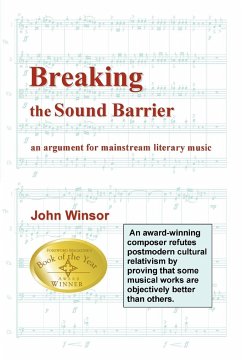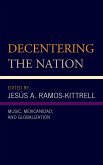Arguments about musical aesthetics often degenerate into "shouting matches" that end in stalemate. In Breaking the Sound Barrier, John Winsor clears the air by presenting evidence that some works are, in fact, objectively better than others. This is a particularly timely issue because a great deal of bad music is being performed in American concert halls right now and a great deal of good music isn't. If you believe that qualitative judgment in the arts is purely subjective, this book should persuade you to rethink your position. If, on the other hand, you think there is a genuine qualitative difference between one musical work and another, this book will provide you with relevant ammunition. Winsor defines music, presents some empirical evidence from the field of music psychology, relates that evidence to events in Western music history, and explains what works and what doesn't - and why. He demonstrates that from the advent of notation to the present, music has, in fact, progressed and not merely changed. He then exposes some major errors in modernist and postmodernist writing that have disrupted music's progress and recommends remedial action for restoring the mainstream literary tradition.
Hinweis: Dieser Artikel kann nur an eine deutsche Lieferadresse ausgeliefert werden.
Hinweis: Dieser Artikel kann nur an eine deutsche Lieferadresse ausgeliefert werden.








